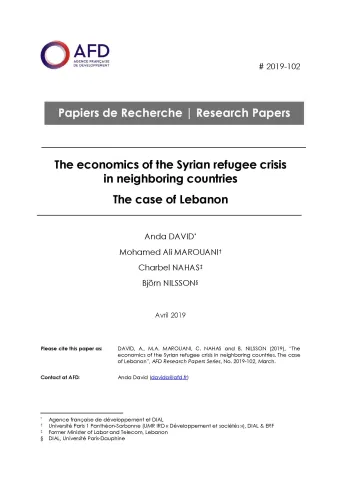Share the page
The economics of the Syrian refugee crisis in neighboring countries. The case of Lebanon
Published on

In this article, we investigate the effects of a massive displacement of workers from a war-torn economy on the economy of a neighboring country. Applying a general equilibrium approach to the Lebanese economy, we explore effects from various components of the crisis on the labor market, the production apparatus, and macroeconomic indicators. Along with previous literature, our findings suggest limited or no adverse effects on high-skilled native workers, but a negative impact on the most vulnerable Lebanese workers is found. When aid takes the form of investment subsidies, significantly better growth and labor market prospects arise, recalling the necessity of complementing humanitarian aid with development aid to succeed in achieving long-term objectives. This may however not be politically viable in a context where refugees are considered as temporary.
Useful Information
-
Authors
-
Mohamed Ali MAROUANI, Charbel NAHAS, Björn NILSSON, Anda DAVID
-
Coordinators
-
Edition
-
102
-
Number of pages
-
24
-
ISSN
-
2492 - 2846
-
Collection
-
Research Papers
